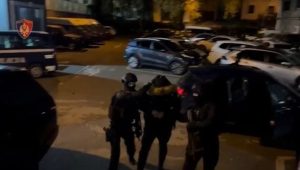Alma Barragán is the latest victim. For the moment. A brave candidate from Ciudadian Movimiento has called her supporters through social media for a rally in Moroleón, the Mexican state of Guanajuato.
But the assassins who executed him were also waiting for him. A cruel and not isolated end to the election campaign for the mid-term elections scheduled for June 6th.
As always in Mexico, numbers say more than words. 88 politicians were killed and of these 34 were candidates for small and other municipalities. Fourteen of them are women.
With another key figure: 89% competed against a ruling opponent. And along with the ambushes, they have also faced attacks.
So far 232 such have been registered. There are those who have been directly threatened, with public warnings and direct warnings.
But there have also been those eliminated with a noose around their necks, or dragged down the street. There are so many ways to get a competitor out of the race and gangsters have no problem doing it physically.
It is a hell without law and protection, in a country separated from the other war, that which is caused by armed groups, police and drug traffickers. The official balance sheet estimates almost 12,000 victims in these first 5 months of the year, one of the most difficult periods.
And the Guanajuato region, where Alma Barragán’s assassination took place, recorded over 300, confirming a dramatic, as well as consolidated, trend. Abel Murrieta, another member of the Movimiento Ciudadiano, was ambushed in Ciudad Obregon. He was in a mall for a date and was killed by a man who arrived after him. He shot him ten times, with two of the bullets ending up in his head. An execution.
Attacks are intense and frequent because control of a municipality plays a crucial role. It is the local base, which can become a bridge for many businesses. And inevitably, suspicions focus on the mafia.
Cartels are a threat, bosses join the mayor and security officials, buy them and reward them. They use them to reach agreements to control the territory by facilitating drug trafficking, illegal immigrants, stolen fuel and agricultural products. But this is only one aspect of a corrupt reality.
The order to “liquidate” people, however, may also come from figures who are not connected to the traffickers’ network.
There are smaller centers of power and individuals willing to do anything to secure victory even when they do not have enough consensus.
They are the ones who hire killers, to whom they entrust the “contract” placed in the head of the rival. It is a dangerous pyramid. It starts at the end, in a small village and then reaches the top by climbing the institutional “stairs”. There are many governors who have ended up on the wanted list. Many of them have accumulated hidden wealth abroad.
Polls suggest public opinion is critical of President Andrés Manuel López Obrador. He promised a change of situation, but every month he is obliged to count the victims.
However, the failure became even more apparent from the tones used by the president himself against the critics, an unreasonable choice in an arena where there is already a tendency to settle scores. (SI)




